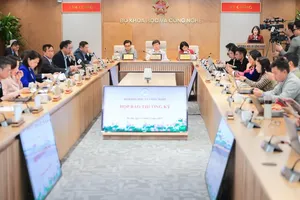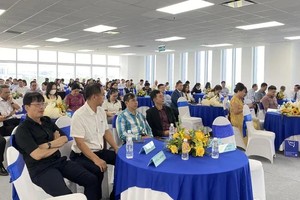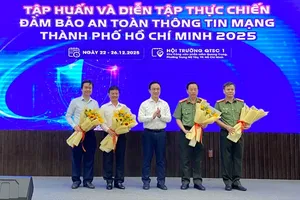The proposed amendments to the Law on Technology Transfer (LTT) are currently under review by the Ministry of Justice and are designed to boost innovation and technology transfer in Vietnam.
The draft law outlines six key policy areas, including stronger incentives and improved state management of technology. A major focus is on decentralizing authority, giving local governments more power to grant technology transfer licenses.
Other notable changes in the proposal include:
- Expanding the scope of technology appraisals beyond just investment projects. This would make appraisals available for other purposes upon request.
- Introducing new concepts like 'green technology' and 'contactless technology transfer' to keep pace with global trends.
- Strengthening support for domestic technology transfer and the commercialization of R&D results. The law aims to clarify technology ownership rights to reduce risks for individuals and organizations, especially for technologies without intellectual property registration.
Regarding the National Technology Innovation Program and the National Technology Innovation Fund, the draft law provides for the continuation of support activities for technology transfer including domestic technology transfer. A completely new provision is introduced that the State may purchase and disseminate technology for the purposes of research and applications serving social and public interests (such as healthcare), thereby promoting domestic technology transfer and developing both the supply and demand sides of the science and technology market.
The fourth policy group focuses on creating financial, institutional, and legal incentives for technology transfer. In line with the Politburo's Resolution No. 68-NQ/TW on private sector development, Article 35 of the draft law institutionalizes this by allowing enterprises to deduct research and development costs at 200 percent of actual expenses when calculating taxable income.
In addition, policies on incentives and preferences are clarified according to the degree of technology adoption and development (application and operation; mastery and improvement; innovation and development). These measures are expected to create stronger incentives for enterprises to invest in technology transfer and innovation.
The remaining two policy groups address strengthening the control of cross-border technology transfer both to ensure technology security and to promote effective international cooperation and enhancing state management capacity through monitoring, statistical reporting, and evaluation of technology transfer efficiency.
The draft also specifies the types of technologies encouraged for transfer, both inbound (from abroad into Vietnam) and outbound (from Vietnam to other countries), with preferential treatment in taxation, credit, and market promotion costs.
























